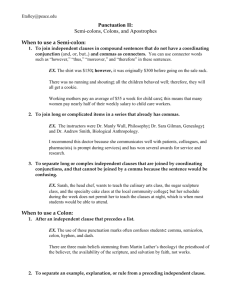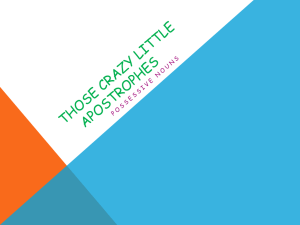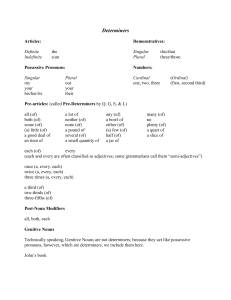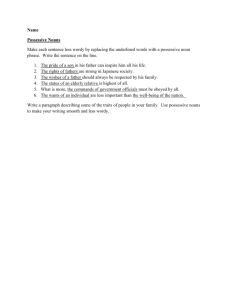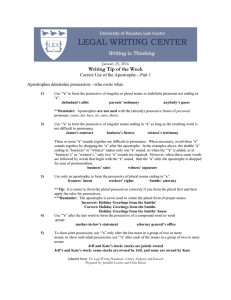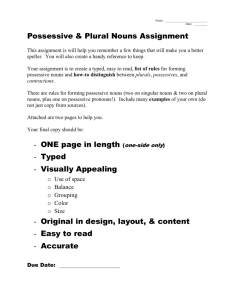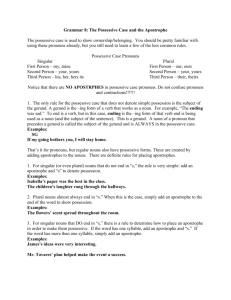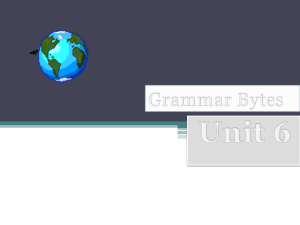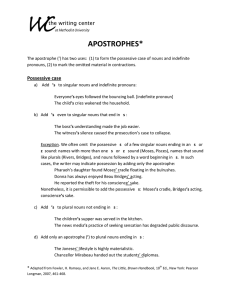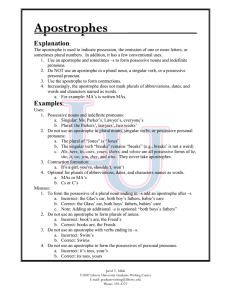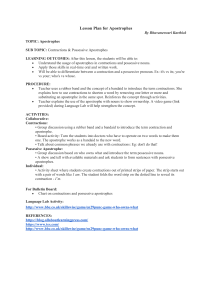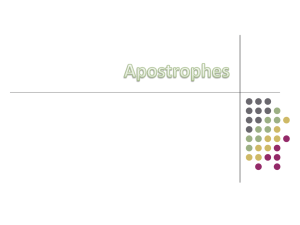Apostrophes and the possessive case
advertisement
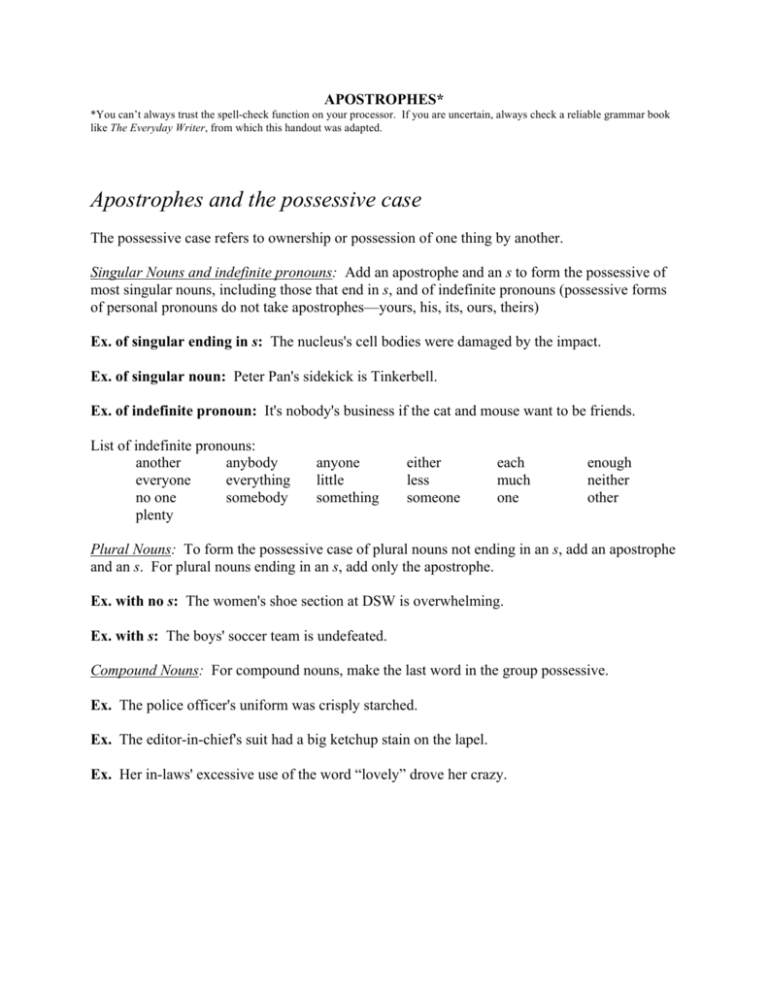
APOSTROPHES* *You can’t always trust the spell-check function on your processor. If you are uncertain, always check a reliable grammar book like The Everyday Writer, from which this handout was adapted. Apostrophes and the possessive case The possessive case refers to ownership or possession of one thing by another. Singular Nouns and indefinite pronouns: Add an apostrophe and an s to form the possessive of most singular nouns, including those that end in s, and of indefinite pronouns (possessive forms of personal pronouns do not take apostrophes—yours, his, its, ours, theirs) Ex. of singular ending in s: The nucleus's cell bodies were damaged by the impact. Ex. of singular noun: Peter Pan's sidekick is Tinkerbell. Ex. of indefinite pronoun: It's nobody's business if the cat and mouse want to be friends. List of indefinite pronouns: another anybody everyone everything no one somebody plenty anyone little something either less someone each much one enough neither other Plural Nouns: To form the possessive case of plural nouns not ending in an s, add an apostrophe and an s. For plural nouns ending in an s, add only the apostrophe. Ex. with no s: The women's shoe section at DSW is overwhelming. Ex. with s: The boys' soccer team is undefeated. Compound Nouns: For compound nouns, make the last word in the group possessive. Ex. The police officer's uniform was crisply starched. Ex. The editor-in-chief's suit had a big ketchup stain on the lapel. Ex. Her in-laws' excessive use of the word “lovely” drove her crazy. Apostrophes for contractions Ex. of two owners: Similarities can be seen between Cher's and Madonna's wardrobes. Ex. of joint possession: Cleo and Loki's owner is crazy about kitties! Contractions are two-word combinations formed by leaving out certain letters, which are indicated by an apostrophe. It is, it has/it's was not/wasn't I am/I'm he is,he has/he's you will/you'll I would, I had/I'd he would,he had/he'd would not/wouldn't do not/don't does not/doesn't will not/won't let us/let's who is, who has/who's cannot/can't While contractions are common in speech and informal writing, they should be avoided in formal academic or professional works. Distinguishing it's and its: Its is the possessive form of it. It's is a contraction for it is or it has. Ex of Its: The UFO appeared to be circular, but its front end was a little pointy. Ex of It's: It's unusual to see a UFO this time of year. Apostrophes and plurals Many style guides now advise against using apostrophes for any plurals. Others use an apostrophe and an s to form the plural of numbers, letters, and words referred to as terms. Check your instructor's preference.
